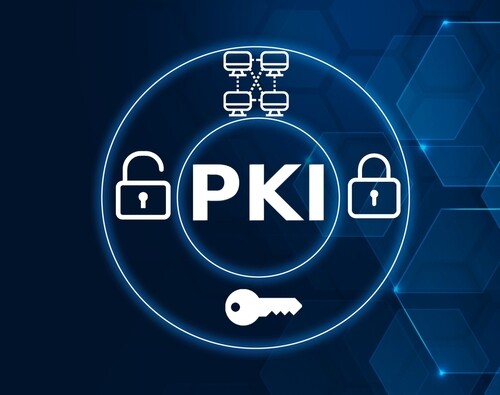As businesses migrate to the cloud, it’s essential to understand the merits of two key approaches to Public Key Infrastructure (PKI): Cloud PKI and On-Premise PKI. In this article, we’ll delve into the advantages of both to help you make informed decisions about securing your digital assets.
Understanding PKI
Public Key Infrastructure, underpins digital security through the issuance, management, and authentication of digital certificates. These certificates are essential for securing web servers, devices, code signing, digital signatures, and more. PKI relies on public key cryptography to encrypt and decrypt data.
The Role of a Certificate Authority (CA)
A Certificate Authority (CA) is at the heart of PKI, responsible for issuing, validating, revoking, and renewing certificates, ensuring their authenticity and trustworthiness.
Cloud PKI
Cloud PKI is a contemporary approach where PKI infrastructure is hosted and managed in the cloud by specialized providers. This method eliminates the hidden costs of on-premise deployments and offers a range of benefits:
Benefits of Cloud PKI
Lower Total Cost of Ownership (TCO) – Cloud PKI significantly reduces TCO by eliminating the need for costly IT specialists and lowering capital expenses. It also minimizes ongoing operating costs.
Enhanced Security – Cloud PKI leverages high levels of network and application security, ensuring compliance with regulations and undergoing rigorous external audits. This safeguards against evolving threats.
Streamlined Certificate Management – Managing certificates is simplified with Cloud PKI, thanks to centralized solutions that automate provisioning, installation, validation, and renewal. A central certificate revocation list (CRL) ensures timely updates.
Scalability – Cloud PKI offers scalability to meet growing business needs. Easily add or remove certificates as required without the need for additional hardware or adjustments.
On-Premise PKI
On-Premise PKI involves hosting and managing PKI infrastructure within an organization’s data centers. While it requires more resources, it provides unique advantages:
Benefits of On-Premise PKI
Greater Control – On-Premise PKI grants organizations full control over their infrastructure and security policies. This is crucial for businesses with stringent security requirements.
Tailored Solutions – Organizations can customize their PKI to precisely align with their unique needs, ensuring a perfect fit for their operations.
Sensitive Data Handling – For organizations dealing with highly sensitive data and regulatory compliance, an On-Premise PKI can offer added confidence in data security.
Conclusion
In the debate between Cloud PKI and On-Premise PKI, there is no one-size-fits-all answer. Cloud PKI offers cost savings, enhanced security, streamlined certificate management, and scalability. On the other hand, On-Premise PKI provides greater control, tailored solutions, and additional security for sensitive data. The choice should be driven by your organization’s specific needs, operational structure, and compliance requirements, as both approaches can significantly impact modern security strategies.
For more information, contact Netrust at https://www.netrust.net/contact-us/.
Follow us on LinkedIn for the latest happenings/updates.





